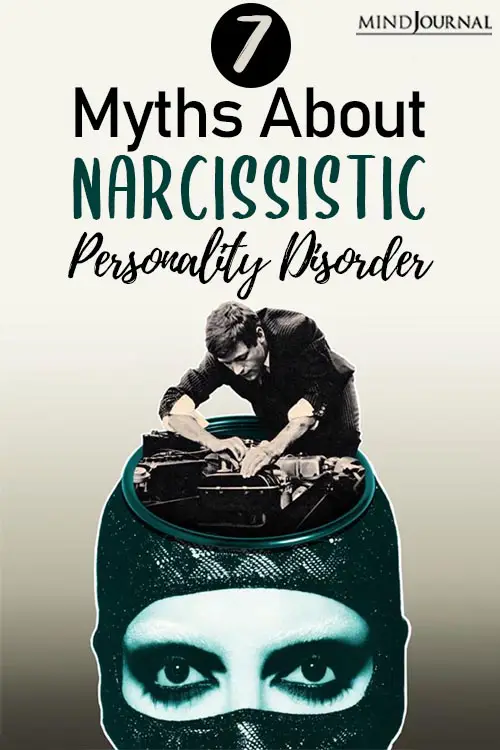Myths About Narcissistic Personality Disorder: Don’t be misled by the fake news about narcissists floating around the internet. By Elinor Greenberg
When I first started reading about narcissists and narcissism on the internet, I quickly realized that much of the information being shared was wrong. People without mental health credentials were labeling all sorts of abusive exes, friends, and parents as narcissists without really having a clear idea about what that diagnosis actually means. Their descriptions of narcissistic personality disorder were often so exaggerated and unrealistic that they made narcissists sound as if they were either comic book villains or superheroes.
Here are a few of the comments that I saw repeated over and over again as if they were absolutely true:
- “Narcissists are all evil demons who prey on empathic people in order to ruin their lives.”
- “You can’t resist a narcissist because they are all incredibly self-confident, sexy, and master manipulators.”
- “All narcissists cheat.”
“Psychotherapy does not work on narcissists.”
A variety of these myths about narcissists have been accepted as the truth because they are repeated over and over again on the internet. In this article, I am going to describe seven common myths about narcissistic personality disorder that I repeatedly encountered.
Some of the myths were proposed as truth by self-styled experts in narcissism. A few extremely grandiose exhibitionist narcissists with no valid mental health degrees or training have decided that they are the real experts in narcissistic personality disorder and that their insights are far superior to those of qualified mental health experts.
These self-styled experts have produced hundreds of videos and blogs that put out a lot of false and confusing information. These videos and essays occasionally contain a few useful nuggets of insight about NPD that are buried inside a heap of claims and complicated assumptions.
The truth is sadder and simpler. Narcissists are people who lack emotional empathy, cannot see themselves and other people in a realistic, stable, and integrated way (lack of whole object relations), are incredibly self-centered value achievement and status, and who adapted to their early upbringing by developing a narcissistic personality disorder.
They overestimate their own abilities, idealize or envy people who are more successful or of higher status, and devalue anyone who criticizes them or who they believe is below them in whatever status hierarchy they value.
While some people with NPD are quite talented and can do well in certain work environments, their narcissistic personality disorder severely limits their ability to form mutually satisfying relationships with other people. Their life is one long search for external validation and perfection.
Note: I am using the terms narcissist, narcissistic, and NPD as shorthand for describing someone who qualifies for a diagnosis of narcissistic personality disorder.
Why are these descriptions so off the mark?
As human beings, we use a few common tools in our attempt to comprehend other people’s strange behavior. In the case of narcissists, we tend to project our own value system onto them and imagine that their motives would be similar to what our motives would be if we did what they are doing. Usually, this is done by people who are in a bad relationship, feel abused by their mate, friend, boss, or parent, and are doing their best to try to understand what is going on.
The other common types of myths that I encounter about narcissism are myths that dehumanize narcissists. Unfortunately, the average person only sees the behaviors and never guesses the underlying issues that these behaviors are meant to address. Here are some examples:
Read: 20 Typography Images That Visualize Mental Disorders Brilliantly
Myth 1: All Narcissists Are Extremely Self-Confident.
The reality is that what appears to be narcissistic grandiosity and self-confidence is a thin, defensive facade that is an attempt to impress other people, stabilize their own fluctuating self-esteem, manage their self-doubt, and stave off feelings of shame and self-hatred.
Myth 2: All Narcissists Intend To Hurt Those Close To Them.
The reality is that narcissists are often oblivious to the harm that they are causing. They are trying to get their own emotional and practical needs met. A great deal of the hurt that they cause is simply collateral damage and not their goal. Their goal is getting narcissistic supplies or defending themselves from what they perceive as devastating attacks on their self-esteem and sense of importance.
Myth 3: All Narcissists Are Sexually Immoral.
The reality is that narcissists differ a great deal in their standards for their own behavior. I know ones who never cheat on their mates and others who are liars and engage in compulsive sexual behavior.
Myth 4: All Narcissists Are Master Manipulators.
The reality is that while I have met a few narcissists who are good long-term planners and great at manipulating other people, they are as rare as great chess players—and not so dissimilar from them. Most narcissists are more similar to children who learn by trial and error how to get what they want from their parents. They take advantage of the other person’s willingness to give in to them. If you have your own firm boundaries, pay attention to what is actually going on, and don’t doubt your own judgment; you are likely to see right through most narcissists’ attempts to manipulate you.
Read: 10 Signs To Spot A Manipulator and Stop The Exploitation
Myth 5: All Narcissists Are Vampire-Like Predators Or Demons.
The reality is that narcissists are people like the rest of us. Narcissists need other people to validate them in order to maintain their sense of self-worth. Their disorder leads them to be insensitive to the feelings and needs of those around them. They lack emotional empathy and are very self-centered. This combination of need + insensitivity + self-centeredness often leads people with a narcissistic personality disorder to be overly selfish and single-minded in their pursuit of what they want.
Myth 6: All Narcissists Are Evil.
The reality is that narcissists may behave in hurtful ways, but they are not inherently evil. They are bad at intimate relationships, but many of them do a great deal of good in the world. Many of our hospitals, libraries, cultural institutions, and schools are supported by exhibitionist narcissists who get their narcissistic supplies from doing good deeds. All they ask in return is to have the hospital wing or theater prominently display their name.
Myth 7: All Narcissists Are Charming.
The reality is that while some narcissists can be superficially charming when you first meet them, others are quite boring and annoying. The charming ones are good at telling stories that make their lives sound fascinating and are likely to know how to make a good first impression. Their charm wears thin after you hear them tell the same stories over and over again, realize that they have absolutely no interest in your life, and use the same techniques with everyone that they meet.
As one of my clients told me: “I thought that I was so special to him because he sent me beautiful cards for my birthday and many other occasions. But then when I was over at his house and opened a drawer to look for a pen, I found stacks of the same exact cards that he sent me.”
Punchline: Narcissists are neither super-heroes nor villains. They are troubled, very self-centered people with low emotional empathy, a host of other narcissistic issues, and are preoccupied with supporting their shaky self-esteem. Unfortunately, their narcissistic flaws interfere with them having mutually satisfying relationships with other people.
Written By: Elinor Greenberg Originally Appeared On: Psychology Today
There is a thin line exists between Narcissism and narcissistic personality disorder. Sometimes narcissism can be helpful but narcissistic personality disorder can be destructive and sometimes vice versa. That is why it’s important to dispel the myths about narcissistic personality disorder and know the corresponding facts about the same.
Frequently Asked Questions (FAQs)
How can I tell if my partner has narcissistic personality disorder or major depressive disorder?
People with narcissism can manifest depression symptoms related to NPD like rage, insomnia, hostile sentiments, and narcissistic injury. The best way to find out is when they exhibit an exaggerated sense of self-importance, lack empathy or manipulation.
What mental illness is associated with narcissism?
Narcissistic Personality Disorder (NPD) is a type of personality disorder that is characterized as a mental condition accompanied by narcissistic symptoms.
How does a narcissist act in a relationship?
Narcissistic partners have a tough relationship because they are so focused on themselves, that they find it difficult to truly love someone else.











Leave a Reply
You must be logged in to post a comment.